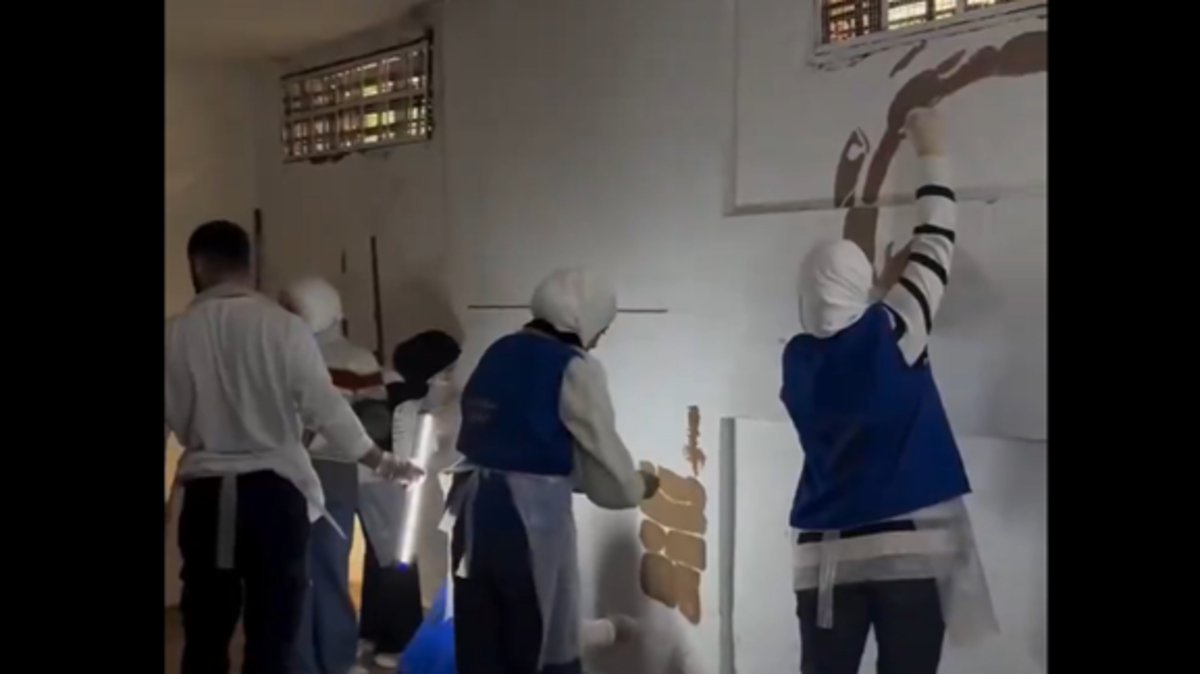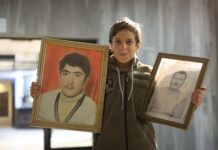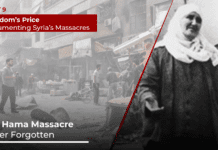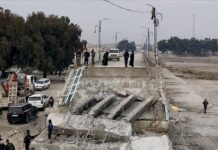
A volunteer group calling itself Sawaed Al-Khair has sparked outrage after painting the walls of a former Assad regime prison in Latakia. Critics allege the action erases critical evidence of war crimes and crimes against humanity committed by the regime, which detained and tortured thousands of Syrians within its vast detention network.
Video Sparks Backlash
The controversy erupted after Sawaed Al-Khair shared a video on social media showing young men and women entering the former security branch, painting over walls, and writing phrases meant to signify a new era. In the video, participants referenced the site’s dark past, stating that it “contained painful memories” but claiming their efforts would transform it into a symbol of hope.
The video quickly went viral, drawing widespread condemnation. Many saw the initiative as an attempt to tamper with a crime scene, undermining efforts to document evidence of the regime’s atrocities.
“This act is a crime no less significant than the crimes of the defunct regime,” Syrian journalist Ahmad Abu Al-Walid wrote on the platform X. “The revolution came out for those behind bars, and today we will not stop until justice is achieved for them.”
Activists & Experts Decry Actions
Human rights advocates and former detainees have condemned the team’s actions. Taqa Mardini, a former prisoner, said the move showed blatant disregard for the suffering endured by detainees.
“These walls carry the voices of the tortured, the names of the disappeared, and traces of untold horrors,” Mardini said. “They should have been preserved as evidence of the crimes committed.”
Syrian lawyer Anwar al-Bunni echoed these sentiments, emphasizing the importance of preserving such sites. “Everything on these walls, including names and drawings, is evidence of the crimes committed there. This evidence could help uncover the fate of the missing,” he said.
The Syrian Network for Human Rights (SNHR) and Human Rights Watch have called for an investigation into the incident. SNHR director Fadel Abdul Ghani emphasized that tampering with crime scenes violates international law and risks obscuring evidence crucial for achieving justice.
Volunteer Team Defends Initiative
In response to the backlash, a participant in the Sawaed Al-Khair initiative claimed that the group had coordinated with the General Security Administration (GSA) before commencing work.
“This place will be rehabilitated by the [GSA] and transformed into a government institution to serve the people,” the participant said, adding that evidence and investigations had been collected before the painting began.
Despite these assurances, the group deleted the video and disabled comments on its posts following the wave of criticism.
International & Legal Concerns
Human rights organizations have long warned against unauthorized interference at former regime sites, emphasizing the critical need for strict regulation to preserve evidence. Human Rights Watch (HRW) recently urged the Syrian transitional government to safeguard documents and artifacts found at detention centers, cautioning that their destruction or alteration undermines justice for victims and survivors.
The SNHR has called for urgent action to protect crime scenes and ensure accountability. The organization has demanded investigations into “unauthorized actions” like those of Sawaed Al-Khair, emphasizing the need for legislation that criminalizes tampering with evidence.
Public awareness campaigns are essential to educate communities on the importance of preserving evidence, while journalists covering these sensitive issues must be trained to do so responsibly. SNHR further recommended measures such as documenting crime scenes with precision and securing evidence to protect it from environmental factors. Preserving crime scenes and evidence is not only a legal necessity but a moral obligation to honor the victims and pursue justice.
The Path to Justice
Advocates argue that former regime detention centers should be preserved as museums or memorials to honor victims and serve as permanent reminders of Syria’s dark history. “These places should stand as symbols of accountability, not sites of erasure,” Mardini said.
The backlash against Sawaed Al-Khair highlights the challenges of addressing the legacy of Assad-era atrocities. Without clear policies to protect crime scenes and ensure transitional justice, the scars of Syria’s brutal past risk being concealed rather than healed.








